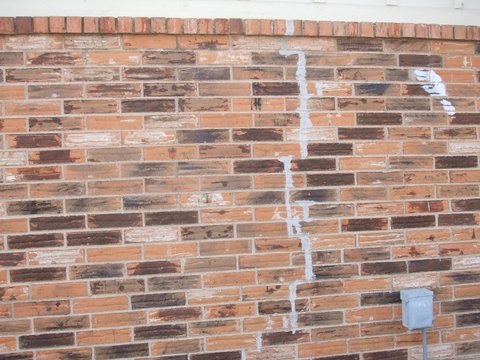

AMR Labs provides some basic
mortar testing services including the
analysis of mortar composition and
mortar color matching.
Testing Mortars
There are many different ways to test mortar and each
testing method is used to determine different information about the
mortar being analyzed. Testing the compressive strength of mortar is
one of the most common mortar testing methods used to identify if a
mortar meets the requirements of a spec sheet from an engineer.
Testing the crushing pressure tells you if the mortar is
hard enough to carry the load and pressures that will be applied to
it. This test is also used to determine what type of mortar should
be used to replace mortar in similar strengths.
Testing the compressive/crushing strength is part of our
full mortar testing analysis, but if it is all you need, the masonry
unit test is the mortar test you need. It is used to determine the
crushing strength of mortars or bricks/stone/tile/blocks.
We provide services across the U.S.
call:
(817) 366-8376
*AMR Labs*
1525 Corona Dr.
Granbury, TX 76048
Or email us:
mortarlab@gmail.com
What are the procedures for ordering Mortar Testing?
Acquire samples of mortar about 1/4 cup or more is best
Payment for mortar analysis (pay online or by check with samples)
Package: Samples in a bag, a copy of receipt for mortar testing or a check, your name, E-Mail, job name, job address,
and shipping address, and a contact phone number.
Send package to us at:
AMR Labs/Alamo Masonry Repair
1525 Corona Dr.
Granbury, TX 76048
How long does mortar testing take?
Your mortar testing report and a cleaned sample of the
original sand will be shipped to you within
5-10 business days.
Some delays may occur with large orders or volume of orders being processed.
Most orders are processed within 1-2 days, and take 1-3 days shipping.
Use a hammer and chisel to remove the samples of mortar from the corners of the home or directly from one of the cracks. Then send us the samples with payment or a copy of the receipt for online payments.
We offer many types of mortar testing including mortar color/composition matching. Some are listed below.
This
mortar analysis analyzes the
compressive strength of mortar, the
mortar composition, mortar type, the sand gradation, and
produces a mortar formula for
matching the mortar composition
and type of the existing mortar sample being
tested or to
analyze and compare two samples of mortar to determine if they
are the same. This mortar analysis includes
compressive strength
testing, hydrochloric testing or
acid digestion of mortar,
magnified examination, weight loss, and sand analysis. A cleaned
sample of the original sand is returned to you with the
mortar
testing report. This test is also used to determine if the
old
mortar is a historic mortar or rather contains
historic lime.
This test follows the astm testing methods for
testing hardened mortar samples. With the mortar composition testing, you can add a sand sieve analysis for additional details
about the sand, and you can add color matching services.
In this mortar analysis, we analyze the composition of mortar samples, compressive strength, and color and produce a mortar formula for matching the existing mortar color and composition. This includes an analysis of the original sand.
This analysis is designed to test the
crushing pressure or
compressive strength of
mortar, brick, stone,
block, or tile,
and is used to analyze and determine if the mortar used is a
good mortar for the masonry units or to determine what type of
mortar should be used with the units. A good
mortar is slightly
softer than the brick or stone it is used to install to prevent
damage to the masonry unit.
There is no reason for
masonry repair to look like this.
Get the mortar tested and properly matched. View our
photos to see what this
project looks like after our mortar testing and
mortar matching
services.

